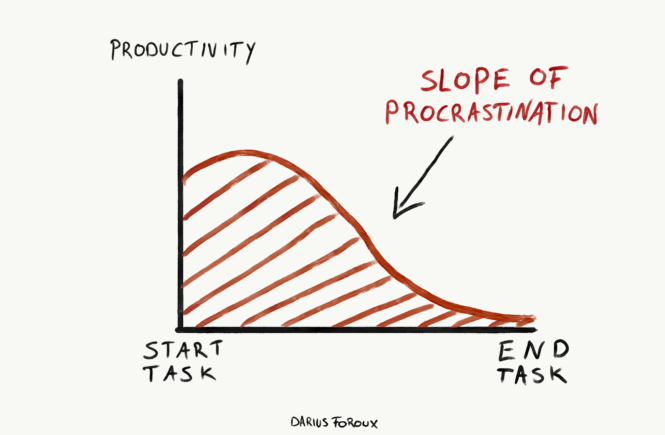You might think that writing is only for authors or people who earn a living with their words. That’s not true. Writing is for anyone who needs to focus.
Writing is a tool. One of the ways you can use writing is as a way to improve your focus and productivity.
Imagine getting fired (or losing your main income stream) and being left to fend for yourself. How would you normally focus on coming back?
There’s a study that involved over a hundred laid-off senior engineers.1Source: Psychology Today These engineers spent four months searching for a new job — without getting any. So the researchers took them in and grouped them accordingly.
In one group, the engineers didn’t do anything out of the ordinary. The researchers simply observed them. But the other group did a task: Write for 20 minutes each day.
The “writing group” wrote about various things, like how they felt, their thoughts on the financial impact of the job loss on their relationships/families, what next steps they’re supposed to take in their lives, etc.
The result? After eight months, only around 19% of the first group found full-time employment.
Meanwhile, 52% of the engineers in the writing group succeeded in their job search. The writing group also reported drinking less as a way of coping, compared to the others.
Writing is not only a way to communicate your ideas, but also a powerful tool to improve your focus, clarity, and productivity.
5 ways writing can improve your focus
Life is full of distractions. But with a writing and journaling habit, you can better organize your thoughts and achieve your goals.
Here are 5 tips on how you can use writing as a focus tool.
- Clarity: Write down your top priorities for the next day. Before I go to sleep, I make it a habit to write down the 3-4 most important tasks I have to finish for the following day. For years, this has helped me wake up with more focus and energy. So whenever I get to work, I don’t have to waste time “checking” things. I simply start and do things. This has allowed me to finish my tasks faster and with less mental effort.
- Self-awareness: Journal daily. Writing is not only for others but also for yourself. Write for your own enjoyment, expression, and growth. This is something that AI writing can’t do. That’s why I still encourage writers to continue their writing habit even if they use a lot of AI writing in their work. When you write about your thoughts and feelings, you put yourself in a meditative state. And this makes you more self-aware which improves focus.
- Be more intentional: Write about your challenges. Whenever you face a challenge or a dilemma, write down the problem and possible solutions. This will help you analyze the situation, weigh the pros and cons, and make the best decision. Writing can also help you calm down and reduce stress, as you release your emotions and thoughts on paper.
- Learn better: Make notes of everything you learn. Whenever you learn something new or have an insight, write it down in your note-taking or journaling app (keep it simple, try the Reflection App). This will help you remember and apply the knowledge, as well as deepen your understanding. Writing can also help you discover new connections and perspectives, as you reflect on your experiences and observations.
- Live the life you want: Write about your goals. Don’t just write about what you want to accomplish. Focus on the why. For instance, one of my long-term goals was to live somewhere warm. But through writing about my goal, I learned that the climate is not the most important thing to me.
Look, we’re all under a lot of social pressure. Seeing other people live Instagrammable lives can make us feel like our life isn’t good enough.
With writing, you can focus on what’s truly important for you. This allows you to remove the desires you don’t need.
With that type of clarity, you will know exactly what to work on in life. You will be surprised at how productive you have become.
Writing = focus
Going back to the study I mentioned above; there’s an interesting result that the researchers found.
The “writing group” responded to fewer job applications. They focused more on the quality of their application.
The writing process likely helped them determine what they really wanted in a company. And what sort of value they can provide to make their job application more enticing.
In a world obsessed with getting more money, time, opportunities, etc. — Writing is a good antidote. It grounds us and helps us focus on the essentials.
Because more is not always better. This enhanced focus is an amazing by-product of writing.




